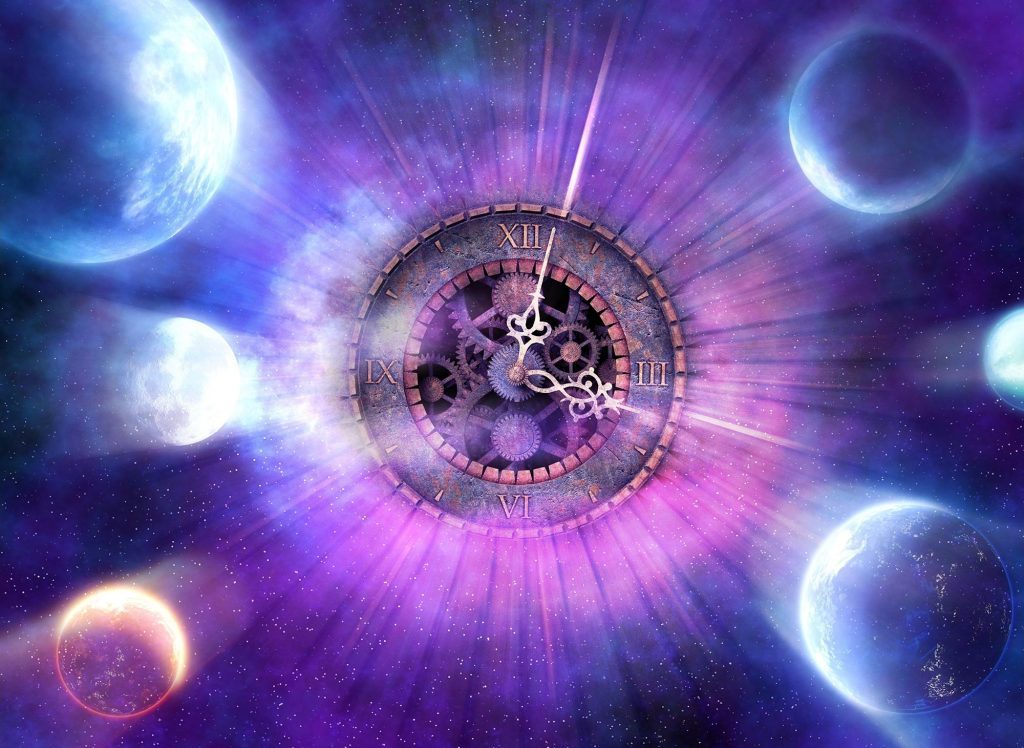時間が存在することをどのようにして知ることができますか?
私たちの生活全体は時計によって規制されていますが、時計が測定するものはそれほど確実ではありません. 時間が本当に存在することをどのように確認できますか? 専門家の小山和也さんにお話を伺います。
朝、目覚ましが鳴ります。 あなたは朝の電車に乗ってオフィスに行きます。 昼食休憩を取ります。 あなたは夕方の電車に乗ります。 あなたは1時間行きます。 夕食を食べています。 寝なさい。 繰り返します。 誕生日が祝われ、記念日が記録され、死が記念されます。 新しい国家が誕生し、帝国は興亡します。
すべての人間の存在は時間の経過とリンクしています。 しかし、私たちはそれを見ることも触れることもできません。 では、それが実際に存在することをどうやって知るのでしょうか?
「物理学では、『絶対時間』という考え方があり、さまざまな変化を一連のイベントとして記述するために使用されます」と小山氏は話し始めました。 「私たちは物事がどのように動くかを説明するためにニュートン物理学を使用しており、時間はその重要な要素です。」 小山は、米国宇宙重力研究所の宇宙論教授です。[{” attribute=””>University of Portsmouth.
To this day, classic Newtonian thought on time – where time is constant throughout the universe – is still a good approximation of how humans experience time in their daily lives. We all experience time in the same way and we all synchronize our clocks in the same way, no matter where we are in the world, whether that be London, Tokyo, New York, or Buenos Aires.
There’s no time without space
Physicists though have discovered that time can actually behave differently and is not as consistent as Newton thought.
“When we speak of time, we need to think of space as well – they come in a package together,” Koyama says. “We cannot disconnect the two, and the way that an object moves through space determines how it experiences time.”
In short, the time you experience depends on your velocity through space as the observer. This works as outlined through Einstein’s special relativity, a theory of how speed impacts mass, time, and space. Additionally, according to Einstein’s general theory of relativity, the gravity of a massive object can impact how quickly time passes. Many experiments have been undertaken that have since proven this to be true.
Physicists have even found that black holes warp the immediate space-time around them due to their immense gravitational fields. Supported by the European Research Council, Koyama continues to investigate this theory.
“A good, solid example to get your head around all of this is to look at how we use GPS,” Koyama continues. “GPS works due to a network of satellites orbiting the Earth. They’re placed at a very high altitude and thus the gravity they experience is weaker. Therefore, time should actually go faster for them than it does for us on the ground, where we experience higher gravity. But because the satellites are traveling at very high speeds around the planet, this in effect helps to slow time down, compensating for the lack of gravity.”
Understanding how these two effects work and influence each other is essential for ensuring that the global GPS network functions correctly. And a crucial ingredient in this is a consistent theory of time that explains how objects move. So clocks aren’t telling us falsehoods: time indeed exists outside of our own perception.
Could we ever go backward in time?
Finally, the question of whether time travel could one day be possible had to be put before Koyama. As a professor of cosmology at the University of Portsmouth, he is best placed to tell us the truth.
“I’m sorry to disappoint you but for time travel to be possible, we would need to discover a completely new type of matter that has the power to change the curvature of time and space,” Koyama says. “Such matter would require properties that simply do not exist in nature. We physicists strongly believe that going back to the past is simply impossible – but it’s nice to fantasize about it.”
Click here to find out more about Koyama’s research: Challenging the general theory of relativity

「主催者。ポップカルチャー愛好家。熱心なゾンビ学者。旅行の専門家。フリーランスのウェブの第一人者。」



/cdn.vox-cdn.com/uploads/chorus_asset/file/25592468/2113290621.jpg)



More Stories
スペースX社がスターシップロケットの打ち上げ準備中、昼夜を問わず火花が散る
二つの大陸で同一の恐竜の足跡を発見
NASAの探査機パーサヴィアランスが火星の火山クレーターの縁に向けて急登を開始